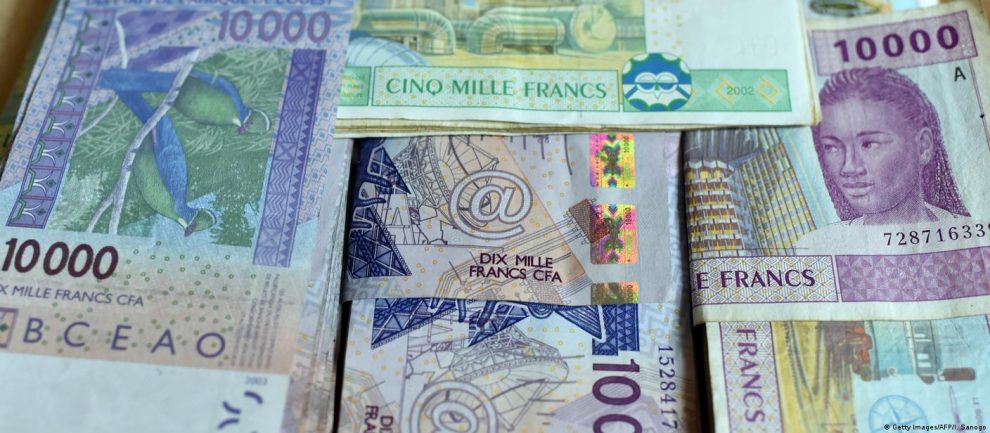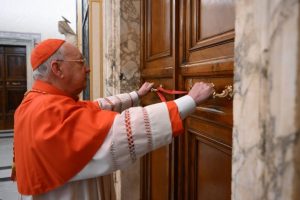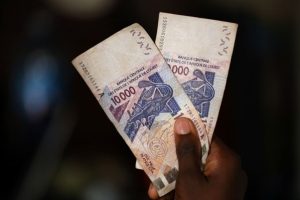The launch of West Africa’s single currency has failed on several attempts. Amid the COVID-19 pandemic, observers say member countries should focus on economic recovery rather than untenable projects like the Eco.
Since its conception in 2003, leaders of the fifteen-member Economic Community of West African States (ECOWAS) have postponed the launch of a single currency at least four times: In 2005, 2014, 2014, and 2020.

ECOWAS leaders had set a goal of achieving a monetary and currency union by late 2020. However, the COVID pandemic and the failure of many countries to meet the criteria for launching the single currency precipitated the postponement to 2027.
The criteria included curbing inflation, budget deficits, and their financing, reserves, and exchange rate stability. Another criterion that these countries have been unable to meet is the debt-to-Gross Domestic Product (GDP) ratio.
John Garchi Gatsi, a chartered economist and professor at the University of Cape Coast Ghana, told DW that one of the reasons the Eco currency failed to kick-off is that it was modeled like Europe’s euro, where leaders came up with a set of benchmarks and criteria that all ECOWAS member states should adopt before the launch.
“In ECOWAS, they agreed to have single-digit inflation and deficits within acceptable limits between 3-5% of their GDP. But they have not been able to achieve this consistently,” Gatsi told DW. “Economic powerhouses like Nigeria, Ghana, Ivory Coast have consistently failed to meet the criteria like keeping inflation below 3%.”
Some observers think Nigeria, Africa’s largest economy, has dragged its feet for the Eco currency to be launched.
Nigeria accounts for 65% of the region’s GDP and about 50% of its total population. It is also one of the region’s only two net oil exporters. Therefore, any economic shocks and responses, such as low oil prices, would be unfavorable for other countries.
But economist Gatsi disagrees. “The fact is that Nigeria has not met the criteria and decided to rebase its economy generally. So, that is not any economic achievement for it to have met the criteria.”
Anglophone versus Francophone econometrics
Even if these hurdles are overcome, political problems will probably still prevent the currency from taking off.
History has it that there haven’t been synergies between French and English-speaking countries in West Africa to work together on various regional trade and investments issues.
Francophone countries within the ECOWAS region, particularly those that use the CFA franc, have their own perceptions of how the Eco currency would work.
The CFA franc is used in 14 African countries, split into the West African CFA and the Central African CFA, and used by about 150 million.
Jerry J. Afo Larbi, an economist and financial analyst told DW that for the Eco currency to be successfully launched, there must be a unanimous agreement between anglophone and francophone countries in the region. “There’s need to promote the currency and educate the indigenes of individual countries for it to work,” Larbi told DW.
“Some countries believe their currency is stronger than the other. Therefore, this would complicate regional trade within the ECOWAS region,” Larbi added.
“West African countries already don’t have a structured way of managing their banking and trade sectors. Therefore, I don’t see the Eco currency coming in place any time soon.”

Risks and challenges
Although the new Eco currency could enhance trade and reduce the cost of transactions between countries, there are significant risks and economic challenges in launching the currency.
Even though changing from one currency to another can enhance investment, there are risks in uniting financial systems with different economic structures. In addition, individual countries cannot adjust their currencies in times of emergency.
“We have different economic structures; some are weak while others are strong,” says Gatsi.
Economist Larbi also concurs that for a common currency to succeed, individual banking systems would be well organized to accept and process this currency.
“How well-informed are citizens about this currency and do west African countries have systems in place to promote this currency? These are some of the questions that ECOWAS leaders also need to address first,” says Larbi.
“Short-sighted” leaders and Covid-19 excuse
Governments in West Africa are using the coronavirus pandemic as a pretext for stalled projects. But even after the outbreak of the virus, ECOWAS countries were not able to meet the criteria to launch the Eco currency.
“There was over-borrowing, high-interest costs that undermine investment in infrastructure that would boost trade, exchange volatility, says Gatsi.
“We have not changed the leadership structures in the region. As a result, none of the individual economies within the ECOWAS region have progressed consistently over the past ten years.”
“Besides, west African leaders are short-term thinkers that only look at their immediate interests like winning the next elections,” Gatsi added.
ECOWAS could achieve greater trade and financial integration, with or without a currency union, and the ramifications for the African continent.
Too much talk, little action
According to Mor Gassama, economist and researcher at the Cheikh Anta Diop University in Dakar, there are still many grey areas concerning the introduction of the Eco.
“These are just words at the moment because the problem in Africa, as everyone knows, is not just a problem of money,” he told DW back in 2019. “It is first and foremost a problem of the management of public funds.
If a head of state does not respect his commitments, the best resources we have are squandered or not used according to our priorities, whatever the currency’s name will not do much good. The decision is more political than economic,” Gassama said.
He adds that for the region to launch the Eco successfully, West African leaders must address their reservations about the currency and articulate a clear position on how to proceed
Source:https://www.dw.com/




















Add Comment